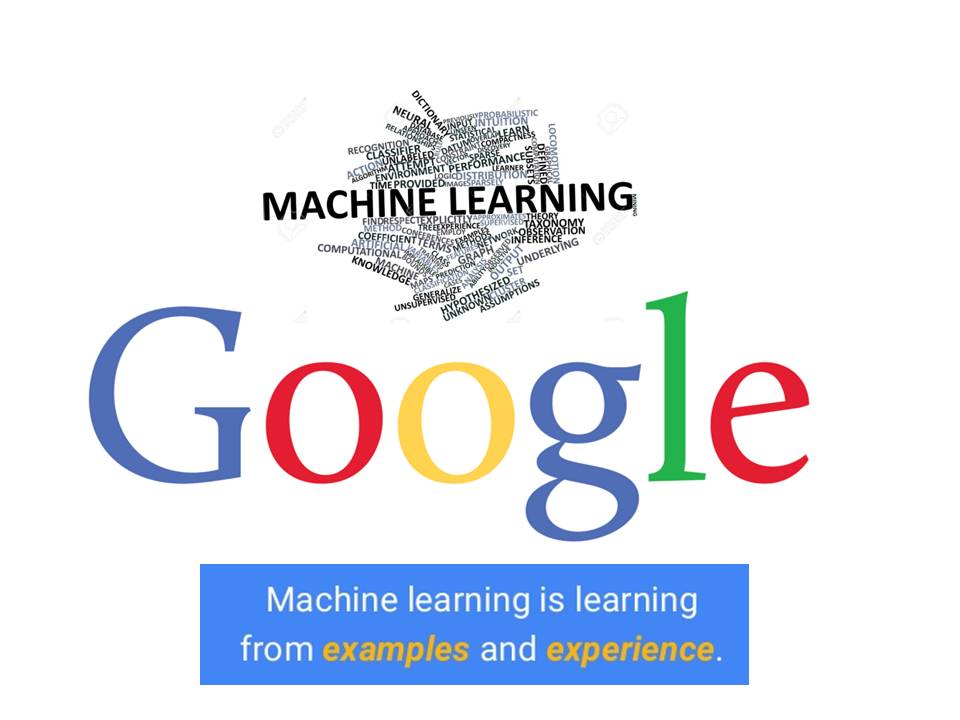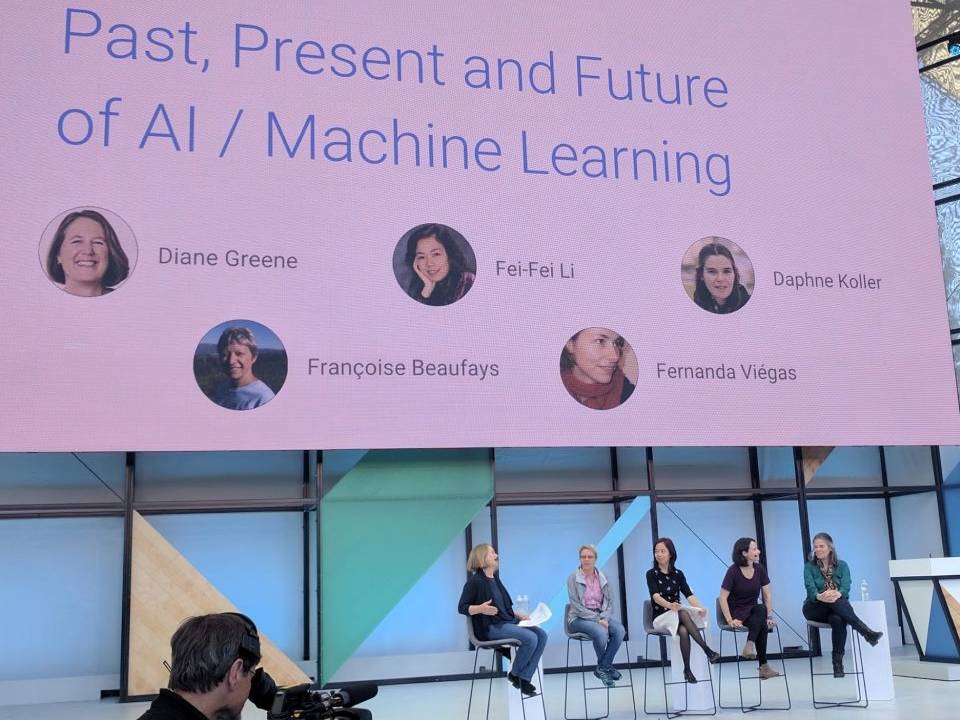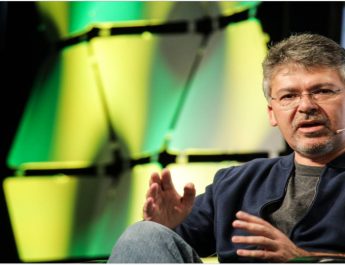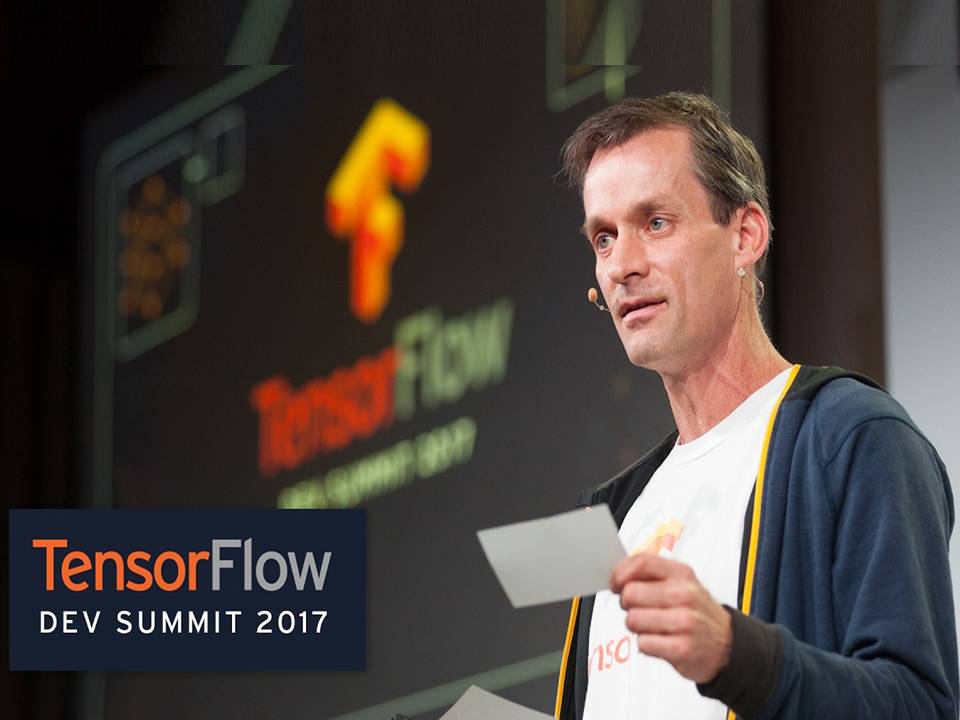From helping farmers in Japan sort cucumbers to helping doctors in India diagnose eye disease, machine learning is changing the way people — inside and outside of Google — use code to solve problems and improve lives.
Google engineers and researchers : Maya Gupta, Jeff Dean, Jay Yagnik, Francoise Beaufays, John Giannandrea, Fernando Pereira, Dana Movshovitz-Attias, Rajat Monga, Lily Peng
Maya Gupta
“As a kid I was really inspired by the Explorers I grew up in Seattle and Lewis and Clark were kind of heroes locally and I wanted to be an explorer when I grew up. As an electrical engineer I would always look for new things that we can do that just whenever possible and machine learning and research is an exploration it feels like an intellectual exploration.”
“With the evitable lot more data and a lot more computing power really can think bigger and sort of changed the game about what kind of models we can envision.”
“So machine learning is all about learning from examples.”
“A little to a bunch of these examples in the machine learning algorithm maybe millions, maybe billions, maybe even trillions, to identify the patterns and generalize from there.”
“You realize just how amazing humans are, just how amazing your four-year-old is who can recognize faces.”
“We’re thinking thoughts and doing things that no man has ever done in sort of setting forth and setting foot in really new intellectual territory here.”

Jeff Dean
“We have definitely seen a big uptake in the last five years in what machines are able to do compared to say the previous decade or two.”
“The real world is actually very messy. Hard logical rules are not the way to solve real-world problems.”
“Rather than writing five thousand lines of code we instead have the Machine learn from observations about the world.”
“In the task of image recognition we’ve been able to train models would take the pixels of an image and from those pixels learn high level features.”
“Now no matter what the noise and the environment, our speech recognition systems understand what you’re saying that can separate out one speaker from another.”
“That’s a promising direction for developing systems that can really navigate the mass of the real world. We wanted to make this an open source project so that everyone outside of Google could use the same system we’re using inside Google.
“An elderly couple in Japan who ran a cucumber farm and one of the big task is to sort cucumbers into like prickly ones, less prickly ones, great ones, curved ones. It’s actually a complicated tasks. So the wife would spend many hours a day sort of cucumbers. The son picked up a computer vision model and was able to build a system to categorize the cucumbers and sort them automatically. All the time wasted according cucumbers is just going to be used in much better ways.”
“The more you see machine learning and the kinds of things that can do, the more you see opportunity for it to improve people’s lives.”
“We could use a computer vision model for everyone who is visually impaired.”
“If you’d asked me a few years ago if a computer would be able to do this anytime soon I would have said I don’t really think so.”
“The promise of Artificial Intelligence and machine learning is that we can actually produce solutions to previously unsolved problems that will really help people.”
Jay Yagnik
“It starts to learn that if you see a cake and you see a kid it’s maybe a birthday party. If you see a cake and lots of kids it’s very likely about the party. That’s essentially teaching the machines to do the perception that we humans are so natural and so good at.”
“There are lots of people who have made very very creative uses of it without knowing a single bit of machine learning. They have the ideas they don’t need to do the heavy lifting that we’ve already done.”
“We can use machine learning to sail power and significance skills even track the spread of diseases and epidemics.”
“It’s very very empowering to imagine what’s going to come.”
Francoise Beaufays
“Machine learning has really been the beginning of a bigger revolution in the field of speech recognition.”
“We could make speech recognizer for everyone in the planet and drastically improve the experience of millions and billions of people.”

John Giannandrea
“To teach speech recognition how to interact with a noisy room, we use real-world sounds and we mix it into the examples that we already have.
“The assistant product that we’re building a google uses the best of our machine learning techniques in speech recognition, image understanding, natural language understanding.”
“I don’t see any area of science or even a human endeavor to learn systems can help with.”
Fernando Pereira
“Machine learning we have now an algorithm that learns out to simulate a human linguist.”
Dana Movshovitz-Attias
“Lot of a language that we see today it’s very informal, interspersed with emojis and stickers. Now Google we’re getting to the point where you can have a much more natural conversation.”
Rajat Monga
“I saw cool example where somebody used to have a cat going around the house all the time so they train the model to identify whenever the cat was there and they were turn the sprinklers on.”
Lily Peng
“387 million people with diabetes are at risk for diabetic retinopathy. It causes blindness. The way that you can find signs of diabetic retinopathy is by taking pictures of the back of the eye. But there’s just simply not enough doctors and it takes hours for an interpretation. So we trained an algorithm that can read the images right then and there. The algorithm can help the doctors get more people screened for the disease.”




